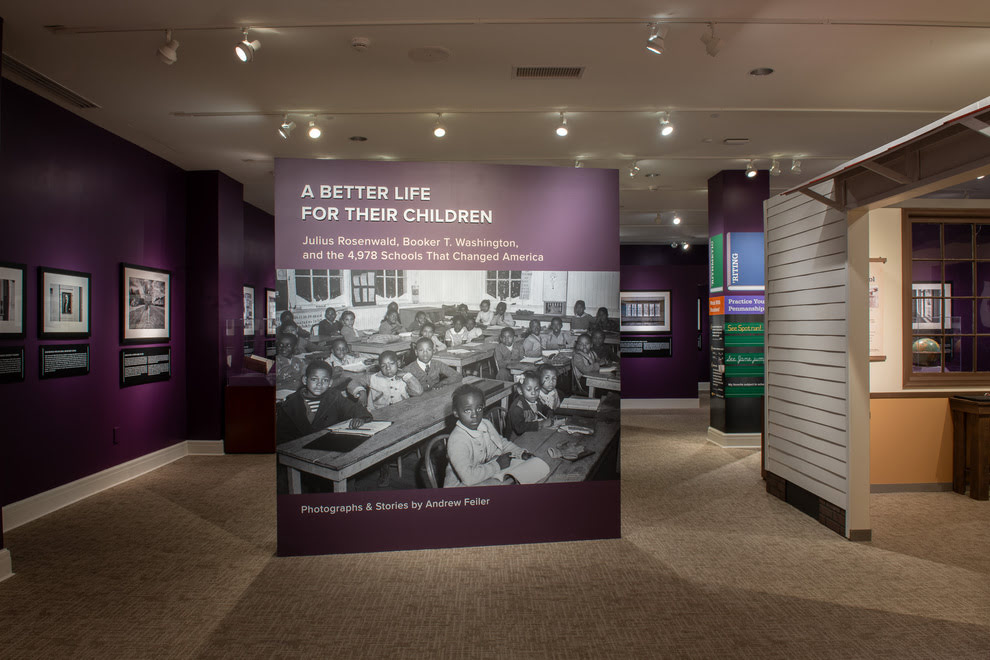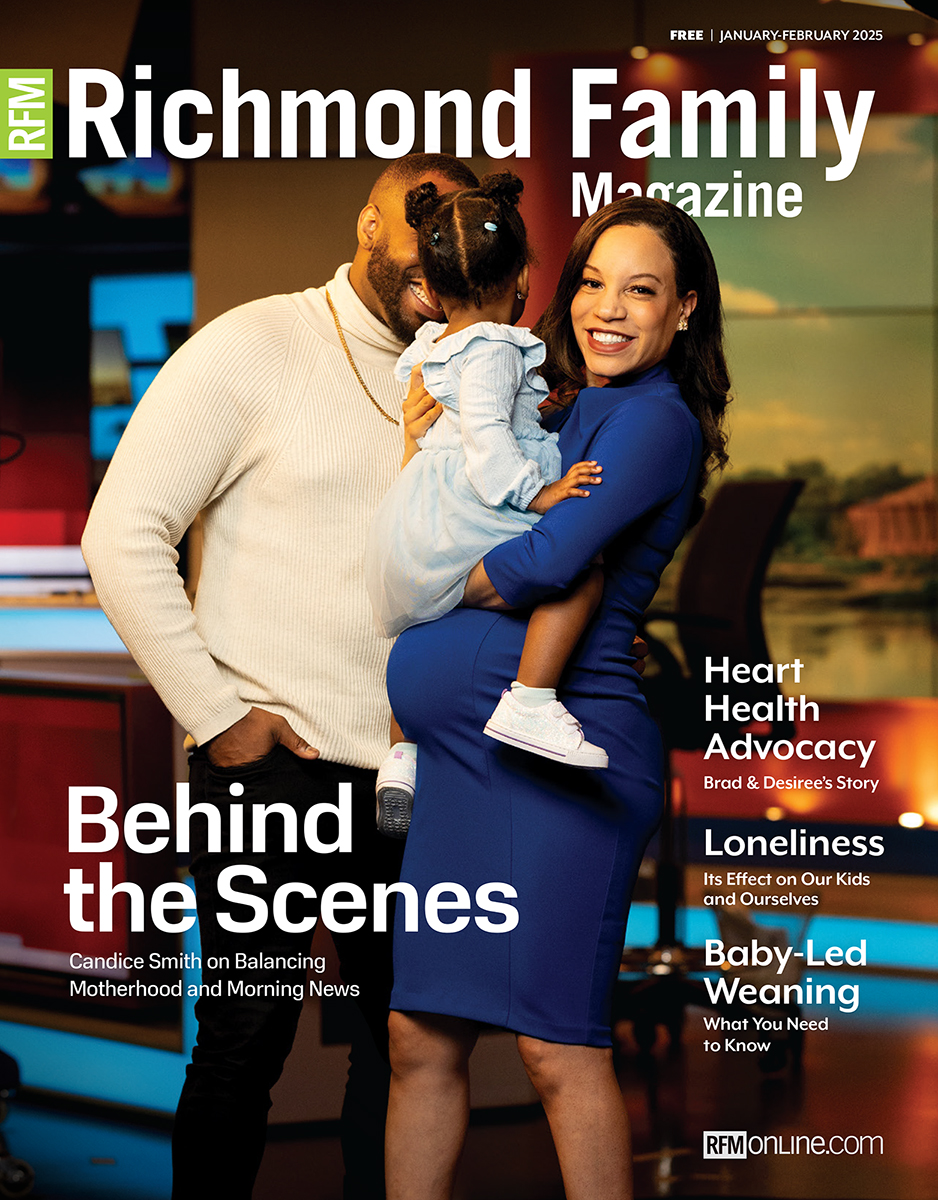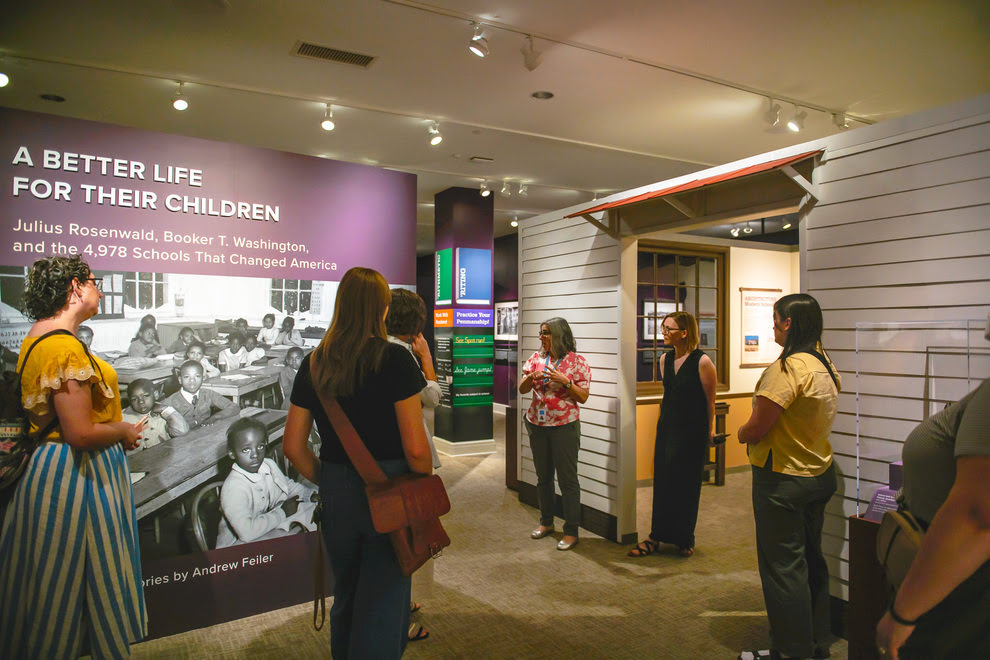This fall over a million students returned to school in Virginia. Children were filled with the excitement of seeing friends, back-to-school outfits, and new school supplies. Unfortunately this level of access to education has not always been the case for all citizens in the United States. Racial segregation prevented fair and equitable schooling for children and drove deep divisions within communities. From this bleak circumstance arose a powerful collaboration between two extraordinary men whose ideas transcended the time in which they lived. Thanks to Andrew Feiler’s work on the exhibit “A Better Life for their Children: A Rosenwald Schools Journey,” visitors to the Virginia Museum of History and Culture can witness the results of the incredible partnership of two very different leaders, Booker T. Washington and Julius Rosenwald.
Andrew Feiler thoroughly researched the partnership of two men who had first-hand experience of discrimination: the esteemed educator, orator, and activist Booker T. Washington and Jewish businessman and philanthropist Julius Rosenwald. From 1912 to 1937, their educational initiative provided the groundwork for the development of nearly five thousand schools for African American children in the Jim Crow South. Feiler traveled extensively to photograph many of the remaining school buildings and interview former students who attended these schools. The exhibit tells the story of how this plan was implemented in communities against the backdrop of the larger history of the period. The personal experiences shared through the oral histories of those who attended the schools are captivating. My 13 and 10 year-old children were especially interested in hearing these stories. Additionally, the exhibit provides hands-on opportunities for younger visitors to see assignments from the time period and even sit in a desk complete with a spot for an ink well. The story of the Rosenwald Schools provides a deep reflection into the power of individuals to make change and the exponential impact education can have on society.

Many of the interviews are available on the VMHC website, and teachers can access these for use in their classrooms. Tickets for this exhibit are included with daily admission to the Virginia Museum of History and Culture: Adults $12; Military, 65+, or Student $10; ages 6-17 $8; ages 5 and under are free. The exhibit opened May 25, 2024, and will remain until April 20, 2025. Tickets to VMHC to see this exhibit make a perfect gift for the history lover this holiday season. I visited with my father and my children which led to meaningful, multigenerational discussions. Andrew Feiler’s book is also available in the museum gift shop.
Visitors may also want to further their research by making the short walk to the Virginia Museum of Fine Arts to see the new photographic Civil Rights exhibit A Long Arc: Photography and the American South since 1845, on display until January 26, 2025. Separate ticket purchase is required.







